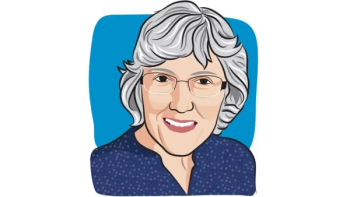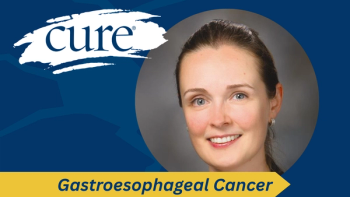
Addition of PARP Inhibitor to Maintenance Therapy May Improve Survival in Ovarian Cancer
The addition of Lynparza to maintenance therapy with Avastin improved time to disease progression in women with advanced ovarian cancer, according results of the PAOLA-1/ENGOT-ov25 trial.
The addition of Lynparza (olaparib) to maintenance therapy with Avastin (bevacizumab) improved time to disease progression in women with advanced ovarian cancer, according results of the PAOLA-1/ENGOT-ov25 trial presented at the European Society of Medical Oncology (ESMO) Congress 2019 in Barcelona, Spain.
In ovarian cancer, the majority of patients are diagnosed in an advanced stage, and will usually relapse within two years, according to a press release issues by ESMO. However, the longer the time is between the start of treatment and disease progression, known as progression-free survival, the better the probability a patient will response to the next line of therapy.
“The five-year overall survival for ovarian cancer is around 45% and we need strategies to improve that figure,” study author Isabelle Ray-Coquard, Centre Leon Bérard, from the Université Claude Bernard in Lyon, and president of the GINECO group France, said in the release.
Therefore, effective maintenance therapies for which women with advanced ovarian cancer will respond to are much needed. The international, academic-led PAOLA-1/ENGOT-ov25 trial is the first phase 3 trial to examine the efficacy and safety of a PARP inhibitor with Avastin as first-line maintenance therapy in patients with ovarian cancer with and without a BRCA mutation.
After completing their first line of therapy, 806 patients with stage 3/4 ovarian cancer and partial or complete response to standard platinum-based chemotherapy and Avastin were randomized to receive either Lynparza or placebo, both with Avastin maintenance therapy. They received Lynparza for up to 24 months and Avastin for 15 months in total.
Progression-free survival served as the primary endpoint.
The median follow-up was 24 months in the Lynparza arm and 22.7 months in the placebo arm.
The researchers observed a median progression free survival of 22.1 months in the Lynparza group and 16.6 months in the placebo group.
In addition, Lynparza did not increase side-effects compared to placebo.
“This study reports the greatest hazard ratio and longest progression free survival we have ever seen,” Ray-Coquard said. “Patient selection was not restricted by surgical outcome or BRCA mutation status, so participants represent the general population of women with advanced ovarian cancer. Previous studies of relapse have suggested benefits from combining anti-angiogenic agents and PARP inhibitors and today’s results appear to support this.”
In prespecified subgroup analyses, the progression free survival benefit of Lynparza versus placebo was even more pronounced in patients with a BRCA mutation and in those with homologous recombination deficiency, both with 37.2 months.
“The results in HRD patients without a BRCA mutation identify, for the first time, a patient population with greater clinical benefit from olaparib when added to bevacizumab,” said Ray-Coquard.
Dr Ana Oaknin, Vall d´Hebron Institute of Oncology commented on the findings: “The main goal in ovarian cancer is to avoid relapse after first-line therapy because otherwise the probability of cure is quite low,” he said. “The combination of bevacizumab and olaparib as maintenance therapy should become a new standard of care for patients with advanced ovarian cancer…This trial is a significant step forward in treatment for these women.”
Ray-Coquard concluded that the next approach is to incorporate immunotherapy as part of first-line therapy. “Ongoing trials are expected to report in two to three years,” she said.



